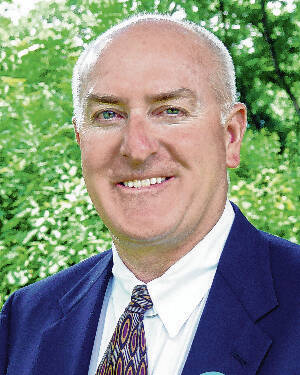
Cummins
“(Gov. Eric) Holcomb supports raising the average Hoosier teacher salary from $56,600 to $60,000 annually. While teaching is a calling and not a career defined simply by pay, our educators deserve a respectable wage. If school systems can’t attract and retain qualified teachers, students suffer.” — Terre Haute Tribune Star editorial, Jan. 25, 2023
By Maj. Ryan Cummins
Guest columnist
Interesting, but confusing.
Is being a teacher a calling? Describing it as a “calling” clearly implies some sort of spiritual aspect to choosing this profession. I wouldn’t argue against that idea. It’s true, common even, that people who are teachers state that it was a dream of theirs to become a teacher — a calling, if you will.
So is being a lawyer a calling? How about a plumber? A newspaper editor? A garden center owner? I think it is reasonable to argue that those who are plumbers or newspaper editors or (insert profession here) felt some impulse, some conscious or unconscious pull to that particular career path. Again, a calling, if you will.
If a plumber or newspaper editor has a calling to be one of these professions in their life, how much should they make in compensation? I mean, they are both important jobs that when done well can have an extraordinarily positive effect on their fellow citizens and especially their customers. When done poorly, they can just as easily have a terrible negative effect on those same persons. Kind of like a teacher, don’t you think?
I don’t recall any pronouncements from the governor or from an editorial pontificating on how much a plumber or newspaper editor should make. Think about it, other than the plumbers and newspaper editors themselves (or the plumbing company and newspaper owners), who has ever given a second thought on what these people make in compensation in these jobs? What is it about these callings that are different from being called to be a teacher?
I’ll go out on a limb and express my opinion as to why this is, why the average person nor the governor of Indiana has ever thought of and doesn’t really know or care what a plumber or newspaper editor makes in compensation. It is because they have no ability to use force to increase their compensation.
They must provide enough value in the eyes of their customers to increase their compensation or even to prevent a decrease in their compensation. When they do their customer will voluntarily, with a smile on their face and satisfaction in their mind, pay their invoices and in doing so create the situation where their compensation is increased. And often substantially more than an arbitrary 7% or so.
Is going from $56,000 to $60,000 enough for teachers? Too much? Not nearly enough? Just right? No one knows, and in fact, no one can know when the decision is made outside of the parameters of free and voluntary exchange.
Seems to me that there are many thousands of qualified, competent, caring, professional people who have been called to be a teacher that would benefit from working in the same system as those plumbers, newspaper editors, lawyers, garden center owners and myriad other professions that work within a free market.
Seems to me that a system where some people (known as customers) voluntarily interact with others (known as sellers) to provide a good living for both is an ethical, moral system where all benefit. Where conflict is minimized because no one can use force to gain what they want, where each must provide commensurate value. When it occurs, everyone comes out knowing they all “won” in the exchange. Is that great or what?
Maybe one of these days, every profession will be able to enjoy the real, measurable benefits of operating in a true free market of voluntary exchange for the betterment of each. Until then, I guess some will have to deal with the Holcombs of the world who for some odd reason think they know better.
Free the teachers. There’s an idea.
Ryan Cummins, an adjunct scholar of the Indiana Policy Review, is co-owner of a family business in Terre Haute and the former chairman of the appropriations committee of the Terre Haute Common Council. Send comments to [email protected].
